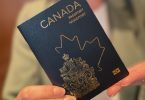Advertisements
Canada has long been a popular destination for immigrants seeking better opportunities. With a thriving economy and a high quality of life, it’s no wonder that millions of people dream of working and living in this beautiful country.
In this comprehensive guide, we’ll share with you the essential steps to work In Canada, and make money. Let’s get started.
Advertisements
READ ALSO: Top 5 Employers Who Provide Visa Sponsorship For Farm Workers In Canada
Immigration To Canada
The first step in your journey to Canada is often obtaining a work permit. This document allows you to legally work in the country for a specific period. However, there are several types of work permits, each with its requirements and benefits:
1. Temporary Work Permits:
These are issued for specific jobs and employers. You’ll need a job offer from a Canadian company to qualify.
2. Open Work Permits:
These offer more flexibility, allowing you to work for any employer in Canada. They’re often issued to spouses or common-law partners of Canadian citizens or permanent residents.
3. Employer-Sponsored Work Permits:
These are obtained through a job offer from a Canadian employer who has secured a Labor Market Impact Assessment (LMIA).
With that said, once you’ve gained some experience in Canada, you may be eligible to apply for permanent residency.
This grants you the right to live, work, and study in Canada indefinitely. There are several paths to permanent residency, including:
- Express Entry: This is a points-based system that prioritizes skilled workers with language proficiency, education, and work experience.
- Provincial Nominee Programs (PNPs): These programs allow provinces and territories to nominate candidates for permanent residency based on their skills and economic contributions.
- Family Sponsorship: If you have a family member in Canada who is a citizen or permanent resident, they may be able to sponsor you for permanent residency.
To apply for a work permit or permanent residency, you’ll need to provide different documents, including:
- Passport
- Proof of funds to support yourself and your family
- Language test results (e.g., IELTS, CELPIP)
- Educational credentials
- Medical examination
- Police clearance certificate
Finding A Job In Canada
1. Use Online Job Boards
The internet is a powerful tool for your job search in Canada. Explore popular job boards like Indeed, LinkedIn, and Job Bank Canada to find a wide range of opportunities.
Use terms relevant to your skills and experience to refine your search and increase your chances of finding suitable positions.
Advertisements
2. Building Your Network
Networking is essential for finding jobs in Canada. Attend industry events, join professional associations, and connect with people in your field.
LinkedIn is a great platform for building and maintaining professional relationships. Don’t be afraid to reach out to people in your network for advice or job leads.
3. Preparing Your Resume And Cover Letter
Your resume and cover letter are your first impressions of potential employers. Make sure they are well-written, and error-free, and highlight your relevant skills and experience.
Fit your documents to each job application, highlighting how your qualifications align with the specific requirements.
4. Preparing For Interviews
Interviews are a common part of the job-seeking process. Research the company and the position you’re applying for to be prepared to answer questions about your qualifications and how you can contribute to the team. Practice your answers beforehand and be confident in your abilities.
READ ALSO: 10 Best Jobs in Canada that Don’t Require a Degree
Canadian Employment Standards
Canada has robust employment standards that protect workers’ rights and ensure fair working conditions. These standards are regulated at both the federal and provincial levels, so specific rules may change depending on where you live and work.
1. Minimum Wage
The minimum wage in Canada is set at a federal level, but provinces and territories may have their minimum wages, which are often higher.
2. Overtime Pay
If you work more than your regular work hours, you’re entitled to overtime pay. The rate of overtime pay varies by province, but it’s typically 1.5 times or 2 times your regular hourly rate.
3. Vacation Time
Canadian workers are entitled to a minimum amount of paid vacation time each year. The exact amount can also vary depending on how long you’ve been employed.
4. Employment Contracts
An employment contract is a legal agreement between you and your employer that outlines your terms of employment. It should include information about your job title, salary, hours of work, benefits, and termination provisions.
5. Workplace Safety
Employers have a legal obligation to provide a safe and healthy workplace for their employees. This includes complying with workplace safety regulations and taking steps to prevent accidents and injuries.
6. Human Rights
Canadian law protects employees from discrimination and harassment based on factors such as race, gender, religion, age, disability, and sexual orientation.
If you experience discrimination or harassment in the workplace, you have the right to file a complaint with a human rights tribunal.
READ ALSO: CANADA MARRIAGE VISA
Advertisements
Taxation In Canada
Canada has a progressive income tax system, meaning the more you earn, the higher your tax rate. Both federal and provincial governments levy income taxes, and the combined tax rate can alter depending on your province of residence.
1. Income Tax Brackets
The federal government divides taxable income into different tax brackets, each with its own tax rate. Provincial tax brackets may also apply, resulting in a combined federal and provincial tax rate.
2. Deductions And Credits
To reduce your taxable income and lower your tax bill, you can claim different deductions and credits. Some common deductions include charitable donations, medical expenses, and business expenses. Tax credits, on the other hand, directly reduce your tax liability.
3. Tax Residency
Your tax residency status determines which country is responsible for taxing your income. If you are a Canadian resident, you are generally subject to Canadian income tax on your worldwide income. If you are a non-resident, you are only taxed on your Canadian-source income.
4. Filing Requirements
Canadian residents are required to file an income tax return each year, even if they have no taxable income. The deadline for filing is typically April 30th.
Cost Of Living In Canada
Without a doubt, Canada is a beautiful country with a high quality of life, but still, you need to consider the cost of living before making the move.
However, the cost of living can change significantly depending on the city you choose to live in, your lifestyle, and your family size.
1. Housing Costs
Housing is typically the biggest expense for most people. Bigger cities like Toronto and Vancouver tend to have higher housing costs compared to smaller cities or rural areas. Renting an apartment or buying a home can be expensive, so do your research and set a budget.
2. Transportation Costs
Transportation costs can also be significant, especially if you own a car. Public transportation options like buses, trains, and subways are available in most cities, but they can be expensive if you commute long distances.
3. Food Costs
Food costs can vary depending on your dietary preferences and where you shop. Grocery stores in Canada generally offer a wide variety of food options, but prices can be higher compared to some other countries.
4. Utilities
Utilities like electricity, heating, and internet can add to your monthly expenses. The cost of utilities can vary depending on the size of your home, your location, and your energy consumption habits.
In addition to the costs mentioned above, you’ll also need to consider other expenses such as healthcare, education, entertainment, and taxes.
Healthcare costs in Canada are generally covered by a universal healthcare system, but there may be additional costs for prescription drugs, dental care, and vision care.
Advertisements






